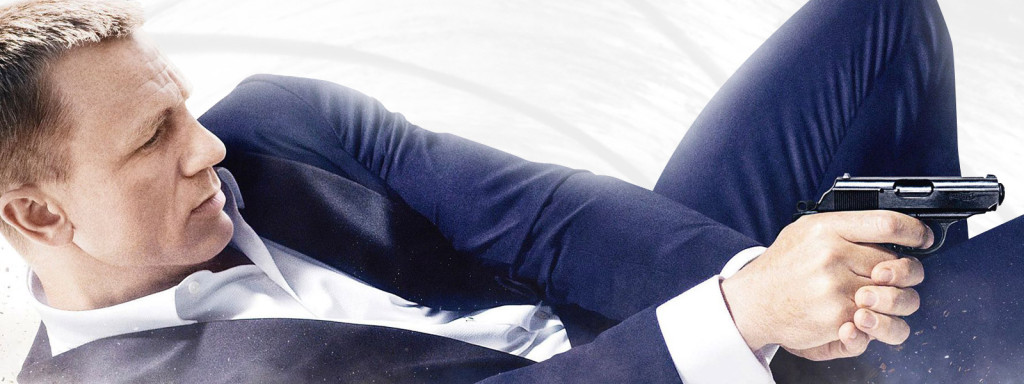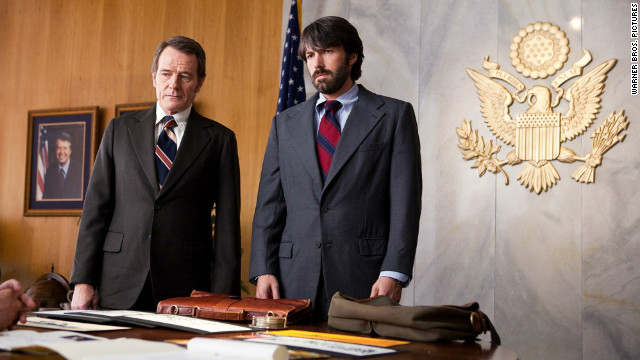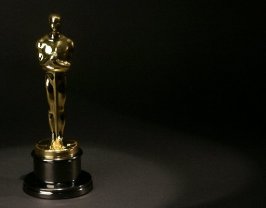In Hollywood no one can hear you scream: that thought went through my head as I watched Rebecca Miller on the red carpet parade preceding last Sunday’s Golden Globes. Miller is Mrs. Daniel Day-Lewis; she’s also a fine film director, so it was a touch dispiriting to see her introduced as merely “the wife” (okay, Day-Lewis is poised to win his third Oscar, something of a record—it’s his night), then ignored, as the NBC commentators fawned on the star. Miller, wearing her best date face, was gracious and stoic. She could have taken a tip from Taylor Hackford (another notable director), who let his wife Helen Mirren get grilled on her Oscar bait, Hitchcock, all by her lonesome as he floated in the back-background.
Tis the season for awards shows, the reality show of champions. The road to this moment was bloody with some good, aspirational films; now, the also-rans are jockeying for their places in DVD heaven, leaving nominated hopefuls to duke it out until the Academy Awards air on February 24. Some short takes on movies that made it to the finish line, and those that didn’t:
The Hobbit (Peter Jackson, director). I’m not a fan of rustics, unless they appear in Shakespeare or on an Amish reality show. So until Hobbit’s mid-point it’s heavy sledding—lots of mock-cute Dopeys and Grumpys acting like refugees from a Farrelley Brothers musical (yep, there are songs!) until Bilbo Baggins screws his courage to the sticking point. This film comes alive only in battle—Jackson remains a master stager of action sequences—and with the return appearance of Andy Serkis’ Smigel, who gives a master class (CGI, notwithstanding) in passive-aggressive aggression. (Nominations-3, all in technical categories)
Django Unchained (Quentin Tarantino, screenwriter and director). Another historical mashup/homage, this time set in the antebellum South. The held shots, quick cuts and slo-mo visions make this story of revenge and rescue more phantasmagorical (and slightly more ridiculous—cue inappropriate laughter) than Inglorious Basterds. But as with Basterds, the cast is the thing: Jamie Foxx, Samuel Jackson, Leo DiCaprio, Kerry Washington and a terrific complement of supporting performers play with just the right amount of snarling satire. None is better than Christoph “Ace-in-the-hole” Waltz, as a gentlemen swindler with a vicious streak, who makes this film matter more than it has any right to. (Nods: 5, including Waltz as best supporting actor)
Skyfall (Sam Mendes, director). You had me at Bond, but thankfully this latest installation of the 007 franchise doesn’t take that for granted. This time it’s London’s MI6 that’s caught in the crosshairs of diabolical intrigue, targeted by Javier Bardem’s Silva, a deliciously pansexual former operative. He’s out for blood, specifically that of Judi Dench’s M, in a twist that finally solidifies this character as something weightier than a bitch with balls: alongside Daniel Craig’s Bond, she forms the apex of a triangle that’s almost too Greek for Oedipus, and the film is all the better for it. Screw those folks who thought Quantum of Solace was too “dark.” Mendes gives us the dazzling car chases (and a dazzling opening atop a spending train that takes the cake) but he’s too smart not to take advantage of the psychological possibilities the Bond stories scream to have unearthed, and a class-act leading man who, arguably, conjures more fascination than Bond himself. A miracle. (Nods: 5 –alas, none for Javier)
Zero Dark Thirty (Kathryn Bigelow, director). Don’t buy the hogwash set forth by David Edelstein and a host of others who tout the idea that Bigelow glorifies terrorism. All this hoopla signals that the director and her screenwriter Mark Boal have accomplished something films rarely do: they’ve prodded a nerve. This depiction of the hunt for Osama Bin Laden, if anything, feels reserved, scrupulously telegraphing torture’s distaste through the eyes of Jessica Chastain’s Maya (compare this film to Gavin Hood’s 2007 Rendition). But Bigelow gets the race-against-the-clock suspense right, and as operatives creep through clues and bureaucratic obstructions toward the climax, Zero steadfastly refuses to let us off the moral hook, or imply a tidy sense of comfort. This unsettling truth—that world we were living in pre-9/11 no longer exists—is the key to the film’s power, and its critic’s agita. (Nods: 5, but not for Bigelow, which makes such awards suspect)
Hitchcock (Sacha Gervasi, director). The plot is supposedly about the making of the watershed thriller “Psycho.” But the story that emerges centers on Helen Mirren’s Alma, Hitchcock’s wife and sounding board, the power behind the master’s throne since the beginning of his career. This movie would have you believe she’s a figure of neglect, cowed by Hitchcock’s (played by Anthony Hopkins, doing the best he can) obsession with his blond leading ladies. But the premise is a bust, since Mirren is the most vital thing in the movie. Skip this, and see HBO’s The Girl, which does a better job of convincing us that Hitch was more than a little daft—the word psycho fit, both in his abuse of Alma (aptly played by Imelda Staunton) and his Hitchcock blondes. (Nods: 1, for hair and makeup)
To be continued…



